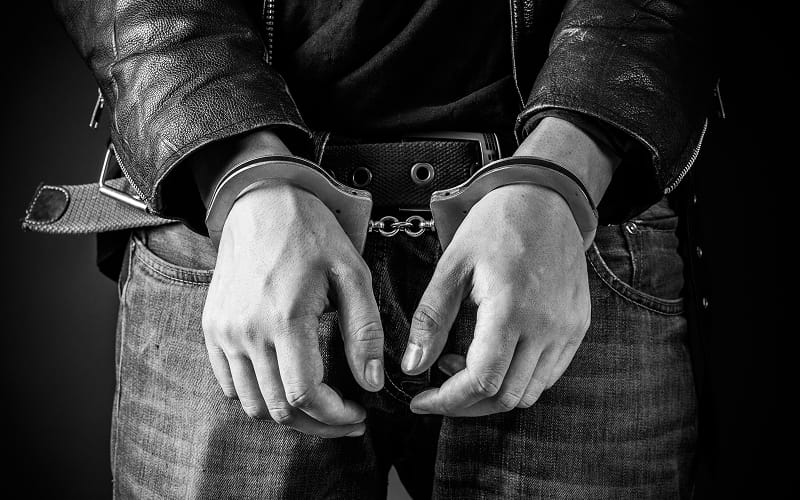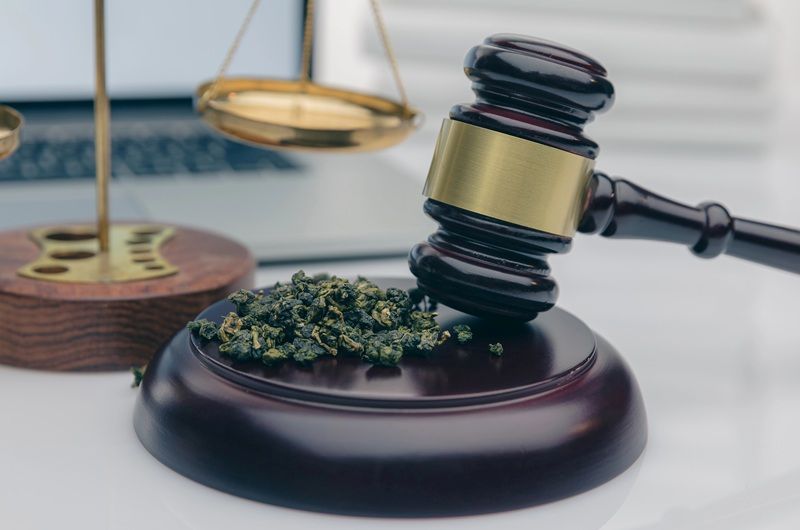Being accused of stealing can be stressful, especially if you don’t understand the charges against you. Virginia law classifies theft into two main categories: grand and petit larceny. Knowing the difference is vital because the consequences can significantly impact your future.
The law defines these offenses based on specific monetary thresholds and circumstances. In this article, learn about the legal distinctions between grand and petit larceny, including what determines each charge and the penalties involved. See how a strong legal defense can affect the outcome of your case.
What Is Considered Theft In Virginia?
Taking something that doesn’t belong to you can lead to serious legal trouble. In Virginia, theft legally known as larceny is a punishable offense with varying consequences. The law separates it into two main categories, each with its legal definition and penalties.
Grand Larceny
Grand larceny is a felony offense in Virginia with severe penalties. Virginia Code defines it as stealing $1,000 or more, taking $5 or more directly from someone, or stealing any firearm, no matter the value. The law treats these cases more harshly due to the higher financial loss or the type of property involved.
A conviction can lead to one to 20 years in prison. In some cases, judges may opt for a lighter sentence, such as up to 12 months in jail and/or a $2,500 fine. Prior offenses, intent, and the recovery of stolen property all impact sentencing. Strong legal representation can help argue for reduced penalties or alternative sentencing options.
Beyond jail time, a felony theft charge creates a permanent criminal record. Many employers and landlords refuse to hire or rent to those with felony convictions. Convicted felons also lose certain rights, such as voting and firearm ownership.
Petit Larceny
Petit larceny, a Class 1 misdemeanor, applies to theft of less than $1,000 or taking under $5 directly from someone. While not as severe as a felony theft charge, a conviction still carries stiff penalties. Jail time, fines, and a permanent criminal record can create lasting challenges.
Punishments include up to 12 months in jail and/or a $2,500 fine. First-time offenders might qualify for reduced penalties, such as probation or diversion programs, but repeat offenders face harsher consequences. Multiple larceny convictions can even lead to felony charges.
A misdemeanor charge can affect employment opportunities, rental applications, and professional licenses. Some landlords and banks reject applicants with a criminal record. Legal guidance can help reduce charges, avoid jail, or even dismiss the case.
Understanding the differences between grand and petit larceny is just the first step. Several factors determine how prosecutors charge a case and what penalties apply. Even a minor detail can shift a case from petit to grand larceny, making examining the offense’s circumstances necessary.
What Factors Affect Larceny Charges?
Not all theft charges are the same. The value of the stolen property matters, but details like the method of theft and the type of item can change the severity of the charge. Sometimes, a minor difference can mean the difference between a misdemeanor and a felony. Understanding these factors can help when facing accusations of larceny.
Value Of The Stolen Property
The most significant factor is the monetary value of the stolen item. Virginia law sets $1,000 as the threshold for grand larceny. Anything below that falls under a lesser charge unless other conditions apply. Even a slight difference in valuation such as whether an item is worth $999 or $1,001 can mean the difference between a misdemeanor and a felony.
Circumstances Of The Theft
Taking money or property directly from someone, even if it’s only $5, automatically qualifies as grand larceny. Theft that occurs without direct contact, such as shoplifting or taking an unattended item, is judged by the property’s value instead. Courts often consider whether force, deception, or other aggravating factors.
Type Of Property
Certain stolen items, such as firearms, automatically elevate a charge to grand larceny regardless of value. Even if a gun is worth only $50, Virginia law treats its theft as a felony. Other items, like vehicles, may also lead to more serious charges depending on the situation. The type of stolen property can heavily influence how prosecutors handle the case.
Larceny charges in Fairfax County, Virginia, depend on more than just price tags. How someone commits theft, and the type of stolen property can turn a misdemeanor into a felony. These factors are key in determining potential penalties, making legal representation critical when facing larceny accusations.
Larceny laws can be confusing, and the differences between charges aren’t always clear. Many people accused of theft worry about potential penalties, the legal process, and their available options. It’s normal to have questions, and getting the correct answers can make a big difference.
What Are Common Questions About Theft In Virginia?
Larceny charges often lead to confusion and concern, especially for those unfamiliar with Virginia’s laws. Understanding these details can help when dealing with theft accusations. Below are some of the most frequently asked questions about larceny in Virginia.
Does A First-Time Larceny Charge Lead To Jail Time?
Not always, but it depends on the circumstances. First-time offenders may receive lighter sentences, such as probation or community service, especially if the stolen property is low value. However, jail time remains possible, mainly if the case involves aggravating factors.
Do Multiple Larceny Convictions Lead To Harsher Penalties?
Yes, repeat offenses often bring harsher consequences. A third petit larceny conviction in Virginia becomes a felony, even if the stolen items fall below the threshold. Courts view repeat offenses as a pattern of criminal behavior, which can lead to stricter punishments.
Will A Larceny Conviction Stay On My Record Forever?
In most cases, yes. Virginia law makes expungement difficult, especially for convictions. If the court dismisses the charge or finds the defendant not guilty, a clean record might be possible. However, those convicted of petit or grand larceny typically cannot remove the charge.
Can You Get A Theft Charge Reduced Or Dismissed?
Yes, courts can lower or dismiss theft charges in certain situations. Prosecutors may reduce a felony theft charge to a misdemeanor if the stolen property’s value falls near the legal threshold or the defendant has no prior record. A strong legal defense improves the chances of securing a favorable outcome.
Do You Need A Lawyer For A Theft Charge?
A lawyer can challenge weak evidence, negotiate for reduced charges, or fight for a dismissal. You risk harsher penalties without legal guidance, especially if prosecutors push for the maximum sentence. The proper defense can protect your rights and help you avoid mistakes that could hurt your case.
Larceny charges can bring serious consequences, from fines, jail time, and even a permanent criminal record. The right legal strategy can make a difference in reducing penalties or fighting the charges altogether. If you’re facing a theft accusation, having a strong defense attorney can help protect your rights and future.
How Can Fairfax County Criminal Attorneys Protect Your Future?
A theft charge can turn your life upside down. Whether you’re dealing with a misdemeanor or a felony, the legal system moves fast, and the penalties can affect your future for years. Fairfax County Criminal Attorneys works to protect your rights, challenge the accusations, and fight for a favorable outcome. You don’t have to go through this alone.
Every case has unique details that can make a difference. We dig into the evidence, the circumstances of the arrest, and any weaknesses in the prosecution’s argument. Whether through negotiation, pre-trial motions, or taking the case to trial, we fight to secure favorable results for you.
A conviction can affect your ability to find a job, secure housing, and maintain your reputation. That’s why we focus not just on the current case but also on long-term consequences. If options like diversion programs or alternative sentencing exist, we’ll push for solutions that help you move forward without a permanent stain on your record.
This charge doesn’t have to define your future. With the proper defense, you can protect your freedom and your future. Fairfax County Criminal Attorneys stands ready to fight for you. If you’re facing a theft accusation, contact us today let’s discuss how to build your defense.
The difference between grand and petit larceny in Virginia affects everything from penalties to long-term consequences. The value of stolen property, the method of theft, and the type of item such as firearms all influence the charges. Felony convictions carry harsher sentences and can impact employment, housing, and other opportunities.
A strong legal defense can help reduce charges, negotiate lighter penalties, or even seek case dismissal. Legal guidance plays a key role in protecting future opportunities. Fairfax County Criminal Attorneys provides dedicated defense strategies for those facing theft accusations.






